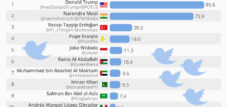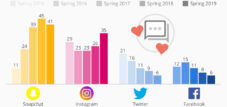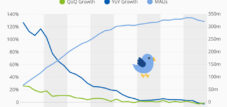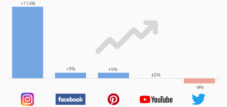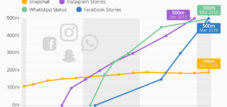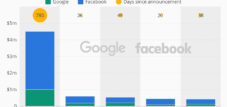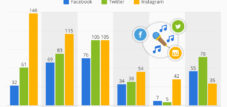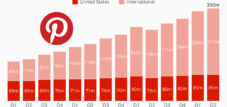Twitter's ads no longer engage users like they used to - Twitter's ads aren't engaging users like they used to
Language selection 📢
Published on: 16. February 2019 / update from: 16. February 2019 - Author: Konrad Wolfenstein
While the absolute growth of advertising engagement on Twitter continues to increase, the rate of this engagement has not maintained the phenomenal rate of fiscal 2016.
Advertising engagement increased in the fourth quarter of 2018, although at a slower pace than in previous quarters. Twitter measures advertising engagement as any user interaction with a pay-for-performance advertising product, including: expanding, retweeting, liking or replying to a promoted tweet, watching an embedded video, downloading or using a promoted mobile application, clicking a website link , sign up for marketing emails from advertisers, follow the account that tweets a Promoted Tweet, or complete a transaction with a promotional product. The social media platform is known for its small number of characters and users' willingness to move back and forth. In fiscal 2016, it witnessed a huge increase in advertising engagement, largely due to the introduction of auto-play videos.
In the final quarter of fiscal 2018, total advertising revenue was $791 million, driven by increased demand and improved click-through rates. Cost per engagement fell as Twitter continued its expansion into video ads, often resulting in higher orders for the same cost. Advertising engagement in fiscal 2018 did not grow at the same rate as the previous two fiscal years, largely because Twitter rode the video wave that brought advertising engagement to 2016 levels and did not innovate beyond.
While the absolute growth of ad engagement on Twitter continues to inch upwards, the rate of that engagement hasn't been able to maintain its phenomenal FY 2016 rate.
Ad engagement has grown in Q4 2018, although at a slower rate than previous quarters. Twitter measures ad engagement as any user interaction with a pay-for-performance advertising product, including: expanding, retweeting, liking or replying to a promoted tweet, viewing an embedded video, downloading or engaging with a promoted mobile application, clicking on a website link, signing up for marketing emails from advertisers, following the account that tweets a Promoted Tweet, or completing a transaction with an advertising product. The social media platform is known for its sparse character count and incendiary back-and-forth from users. It experienced a huge spike in ad engagement in FY 2016, largely driven by the adoption of auto-play videos.
In the last quarter of FY 2018, total ad revenue totaled $791 million, which Twitter attributes to increased demand and improved clickthrough rates. The cost per engagement dropped as Twitter continued its expansion into video ads, which often yields higher engagements for the same cost. Ad engagement in FY 2018 did not grow at the same rate as the previous two fiscal years, largely because Twitter has ridden the video wave that pushed ad engagement to its 2016 levels and has not innovated beyond that.





